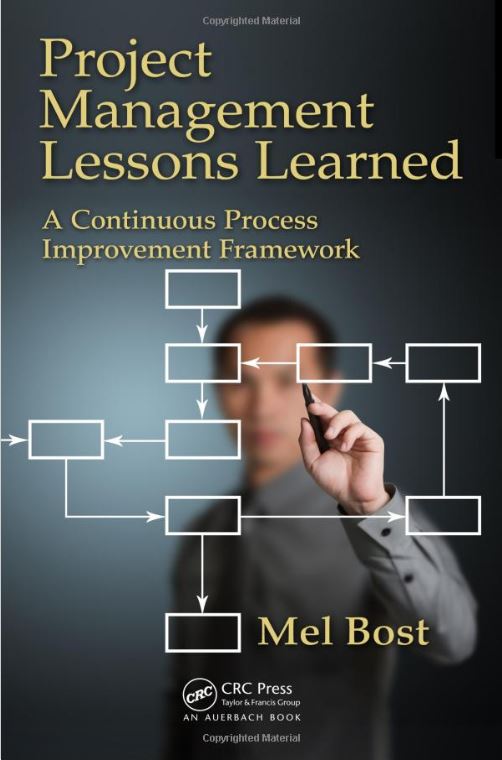Pretend for a few minutes that you are the Vice President of Program Management for your company, and that you are taking some time to “reflect” on where your PMO has been, and where you think it is going. It hasn’t always been an easy road getting to this point.
There were times when you thought “project management” might even be a dirty phrase, because the promise just didn’t appear to be there.
And there was that investment in Training and Development that you authorized that really hit the budget hard when everyone else was cutting back.
And there have been times when expectations for your PMO have fallen a little short. But, of course, being the dynamic, forward-thinking manager that you are, you recognized that it just took a little “systemic thinking” to uncover the reasons why the group was being held back. And once again, after that intervention, the flow returned to the group.
Now it seems that, with the challenges coming from left and right, and organizational change always in the wind, you are questioning what you can do to “motivate” this group further so that it can make that next step change. You have authorized all the bonus and salary increases that you could, but with the recession really lingering on in your industry, you are concerned that some of those increases might be negated at the corporate level.
A friend suggested to you the other day that you might take a look at the You Tube video by Daniel Pink based on his book Drive: The Surprising Truth About What Motivates Us. You have been putting that off but maybe it’s time to take a look. Can’t hurt.
You sit back and watch the video…..twenty minutes away from the phone and the other interruptions won’t hurt anything.
As Daniel Pink begins to unravel his thesis using a white board and marker, the conclusion hits home rather pointedly. When individuals who are provided greater monetary incentives to do rudimentary tasks, the old motivation theory seems to bear out; i.e., the more incentive offered, the more the person accomplished of the rudimentary task.
But now, in Drive, Daniel Pink is making a new argument. Better pay attention here. When the task requires some cognitive activity and the processing of higher-level complex concepts, the old motivator doesn’t hold true. Those who are paid more to accomplish complex tasks actually accomplish less?!! What is going on here? That can’ t be. You sit up and take more notice now.
Daniel Pink continues. He goes on to say that when people are given more freedom and autonomy to determine which projects they would work on, and when they are allowed to be self-directed in their execution of those projects, they seem to accomplish significant feats. And then he starts to explain that people who are motivated to master a specific skill (such as a musical instrument) actually go out of their way to achieve this “Mastery”–even if it means making time in their busy lives to accomplish that mastery.
Then he goes on to say that when highly skilled people are questioned about what really motivates them to accomplish something, invariably they say that they feel that their accomplishment gives them a “Purpose” and that they want to “Contribute” to something larger than themselves.
Many of these people are considered the most competent in their field.
Some of these people happen to be “Project Managers.”
Daniel Pink summarized by stating that motivation can be thought of as consisting of three “buckets”:
1. Autonomy and Challenge–“the desire to be self directed”
2. Mastery–“the urge to get better at stuff”
3. Purpose–“the desire to make a Contribution”
In the video, Daniel Pink cites several examples of companies and organizations which have allowed their employees to take one day a week or month in which they work on anything they desire to work on with whomever they desire to work, as long as they share it with the others in the group. His research has shown that this has resulted in those organizations showing dramatic improvements in their processes, systems, and other value-adding components (which, to that point, have yielded mediocre results).
Suddenly, it hits you–this video isn’t just an explanation of some interesting research–it presents some very startling, actionable results. Some very tangible steps that any organization could take. SOME STEPS THAT EVEN YOU COULD AUTHORIZE, MR. BUSINESSMAN.
What if? Your Project and Program Managers are some of most skilled practitioners in project methodology, and scheduling, and team building, and project lessons learned that you have ever seen! Could they actually improve their own performance and raise the level of performance of the entire PMO and the company with something so simple as this? Autonomy…..Mastery….Purpose.
You ponder it for a minute and then you turn and pick up the phone.
“George, would you assemble all the Managers in the Conference Room as soon as you can arrange it.”
“What’s the topic? Motivation and our Program Management Office. We are going to unleash the power of our most skilled Project and Program Managers and take this organization to the next level of Program Management.”
Are you ready to take the next step?

Thanks for your interest.
What a great resource!
Thanks for your comment.
Keep posting stuff like this i really like it
Thanks so much. I try to write about the current topics of interest to prooject managers and PMO enthusiasts. Keep reading.